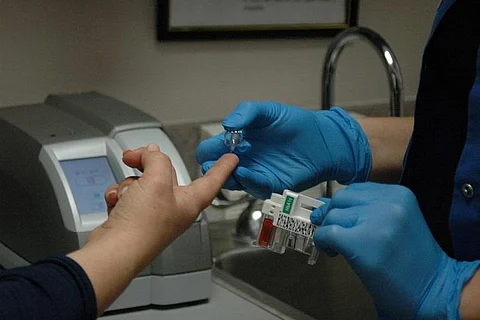

Diabetes is one of India’s greatest public health challenges. A combination of genetic predisposition, sedentary lifestyles and unhealthy diets means it has become the country’s fastest-growing disease. 72 million cases were recorded in 2017. This is expected to double by 2025.
The spread of diabetes and other noncommunicable diseases (NCDs) is not confined to the affluent in India’s metropolises. Rural India is experiencing its own crisis of NCDs. Such conditions account for 40 percent of deaths there.
Diabetes poses a particular challenge for rural India. It is a chronic condition requiring lifelong management. The lack of a robust public health infrastructure in rural India means that, for many, the private sector is their only recourse. As such, treatment for a long-term condition such as diabetes can rapidly become an unmanageable expense.
This is if it gets diagnosed at all. Many in rural India are unaware of the symptoms of diabetes.If left untreated, the condition can lead to severe and sometimes fatal complications.
This is why the ‘IMPACT Diabetes’ program could be a much-needed development in the management and treatment of diabetes. The program was launched by the Sydney-based George Institute for Global Health on April 19. It involves “digital technology coupled with using the experience and knowledge of local health workers,” according to Professor Vivekanand Jha, the Executive Director of the Institute’s India branch.
The scheme will involve training community health workers, also known as Accredited Social Health Activists (ASHAs), to use a smartphone app. Using the app, ASHAs can make digital records of a patient’s blood sugar levels, blood pressure, weight, and height. This allows the ASHAs to screen patients for diabetes and monitor those at elevated risk.
If a diagnosis is made, ASHAs can refer the patient to a doctor. They can later check in to ensure a patient is adhering to their treatment regimen. The app will also help ASHAs identify and monitor those at elevated risk of developing diabetes.